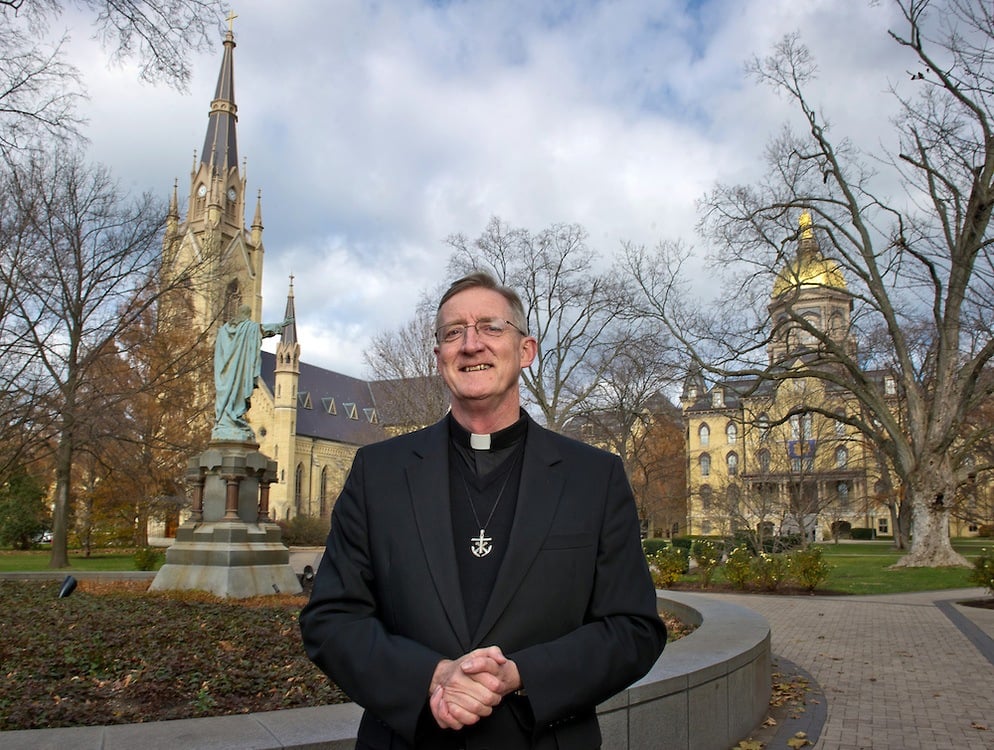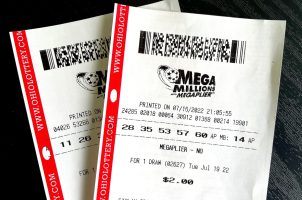South Bend Casino Puts Gambling Next to America’s Most Distinguished Catholic University
Posted on: November 28, 2016, 03:00h.
Last updated on: November 29, 2016, 07:46h.

A South Bend casino is cleared for construction, and when the resort is completed, will put gambling less than five miles from the University of Notre Dame campus.
On November 17, the United States Department of the Interior (DOI) placed 165.81 acres of land southwest of downtown South Bend, Indiana, into trust for the Pokagon Band of Potawatomi Indians.
The Native American tribe purchased the parcel more than four years ago, and has been battling with federal authorities to have the property designated as sovereign land ever since.
Gambling in Indiana is reserved to riverboat casinos, with the exception of the French Lick Resort, which allowed the moat around its casino to dry up in 2008.
There are no federally recognized Native American tribes in Indiana, as the Pokagon Band is based in southwestern Michigan. The tribe already operates the Four Winds Casino Resort in New Buffalo, Michigan, as well as Four Wind casinos in Hartford and Dowagiac.
“With this approval, we can further fulfill the intent of Congress to remedy the decades the tribe endured as the federal government shirked its trust and treaty responsibilities,” Principal Deputy Assistant Secretary of Indian Affairs Lawrence Roberts said in a DOI letter. “Congratulations on the restoration of tribal homelands in Indiana.”
Let the Games Begin
Now that the US government has put the Pokagon tribe’s Indiana property into trust, the band can move forward with its casino plans. The resort will be built on acreage near US 31 and Locust Road.
The Pokagon’s casino proposal calls for an 18-story, 500-room hotel tower complete with 216,000 square feet of gaming space. The tribe has pledged at least $1 million each year to the city and a $5 million donation to various charities in the South Bend community.
The project would create 2,000 permanent jobs according to the tribe. But there have been plenty of opponents to the casino during the federal government’s four-year review.
Citizens for a Better Michiana, an organization formed to fight the casino, was the leading voice for antagonists.
“The immediate reaction is sadness for our community,” Citizens for a Better Michiana rep Jake Teshka told the South Bend Tribune last week. “We love the Pokagon people. We are just concerned about this casino. There may be some fight left in us.”
Lasting Decision
Under the Indian Gaming Regulatory Act and subsequent Pokagon Restoration Act, the tribe has the federal right to offer Class I and II gaming on the trust property. To include Cass III games commonly found at commercial casinos, the Pokagon Band would need to enter into a compact with the state.
The DOI ruling could have a substantial impact on future federal negotiations with tribes. In July, US District Judge William Young opined that tribes recognized after 1934 cannot receive federal land trusts from the government.
The Pokagon tribe traces its roots back to the early 1800s, but many of its bands moved out west during the 1833 Treaty of Chicago. The Pokagon Band as it’s known today regained federal recognition in 1994.
Related News Articles
Luxor in Las Vegas to Transform Former Nightclub into Esports Arena
Caesars CEO Mark Frissora Buys Nearly $1M Worth of Company Shares
Most Popular
Las Vegas Overstated F1 Race’s Vegas Impact — Report
Vegas Strip Clubs Wrestle in Court Over Animal Names
ESSAY: Remembering ‘The Beatles LOVE’ in My Daughter’s Eyes
Most Commented
-
End of the Line for Las Vegas Monorail
— April 5, 2024 — 90 Comments -
Mega Millions Reportedly Mulling Substantial Ticket Price Increase
— April 16, 2024 — 6 Comments -
Long Island Casino Opponents Love New York Licensing Delays
— March 27, 2024 — 5 Comments -
Nearly Abandoned Mall Outside Vegas Soon to Have Only One Tenant
— March 12, 2024 — 5 Comments















Last Comment ( 1 )
Why would the Indiana Legislature approve class 3 gaming. The tribe pays no federal taxes, and pays little to no state income taxes. And those taxes are politically negotiated and "locked " in at low rates for eternity. Everyone loses on this deal. The state loses tax money and money on admissions to the casino. Why is this group of people so special. This is no economic boom to the community. Just a drain on resources. Call the Village of New Buffalo and see how much the Pokagon Tribe of owes in back taxes and payments for services, it's a joke. Really, an Indian Village, for what? So a "special" group of people who are part of a "Tribe" can collect checks and sit on their asses and drink all day, and cry and lament about "what the white man did to us". Besides that, if you "work" there, the "Native Americans " get first choice, special consideration, or preference over everyone else because they are a tribe member and part of a "sovereign nation". How "racist " is that? And that's OK? THIS IS A JOKE!